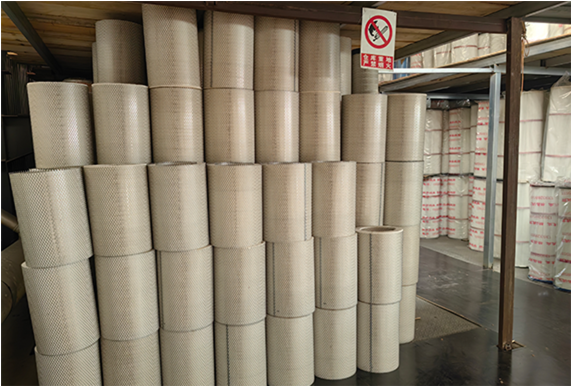 Tel:
+8615930870079
Tel:
+8615930870079
Sep . 06, 2024 11:49 Back to list
Cartridge Filter Vacuum Solutions | Efficient Filtration Systems
Understanding Cartridge Filter Vacuum Systems
In the realm of filtration technology, cartridge filter vacuum systems are gaining recognition for their efficiency and versatility in various industrial applications. These systems are designed to serve as a crucial component in maintaining cleanliness and ensuring the purity of processes in various sectors, including pharmaceuticals, food and beverage, chemicals, and more.
What is a Cartridge Filter?
A cartridge filter consists of a cylindrical filter element contained within a housing. The design typically allows for easy replacement and maintenance, which is paramount in keeping operations running smoothly. Cartridge filters can be made of various materials, including polyester, polypropylene, and metal, depending on the application requirements. These filters can remove contaminants, including particles, bacteria, and other impurities from liquids and gases.
The Vacuum Aspect
The integration of vacuum technology with cartridge filters enhances their effectiveness. When a vacuum is applied, it creates a pressure differential that facilitates the movement of air or liquid through the filter. This process not only improves the filtration rate but also ensures that contaminants are efficiently trapped within the cartridge, thus prolonging the life of the filter and reducing maintenance frequency.
Applications of Cartridge Filter Vacuum Systems
1. Pharmaceutical Industry In the pharmaceutical realm, maintaining stringent hygiene standards is critical. Cartridge filter vacuum systems are utilized to ensure that the raw materials and final products are free from contaminants, preventing costly recalls and ensuring compliance with health regulations.
cartridge filter vacuum

2. Food and Beverage Processing The food industry demands high levels of purity in production processes. Cartridge filters are extensively used to protect equipment from particulate contamination and to ensure the quality and safety of the end products.
3. Chemical Processing Chemical processes often involve a variety of hazardous materials. Using cartridge filter vacuum systems helps in managing airborne contaminants and protecting workers’ health while also maintaining the integrity of the product.
4. Water Treatment These systems are also employed in water treatment facilities to remove impurities from drinking water and wastewater, ensuring safe and clean water for communities.
Advantages of Cartridge Filter Vacuum Systems
The benefits of adopting cartridge filter vacuum technology are manifold
- Efficiency The design allows for a high filtration capacity, which helps in reducing operational downtime. - Cost-Effectiveness Although the initial investment might be higher than other filtration methods, the long-term savings on maintenance and replacement make them economical. - Versatility They can be customized to meet specific needs based on the materials being filtered and the contaminants being targeted. - Ease of Installation and Maintenance Cartridge changes are straightforward, allowing for quick replacements without disrupting the entire system.
Conclusion
Cartridge filter vacuum systems represent a pivotal advancement in filtration technology, providing industries with robust solutions for maintaining cleanliness and purity. As businesses continue to seek ways to enhance operational efficiency while adhering to safety and quality standards, the demand for such innovative filtration technologies is expected to rise. By understanding the basic principles and applications of these systems, organizations can make informed decisions to improve their processing environments and uphold the quality of their outputs. As we move forward, the importance of robust filtration solutions will only magnify, paving the way for continued advancements in this crucial area.
-
Types and Applications of Air Filtration CartridgesNewsJul.28,2025
-
The Role of Gas Turbine FiltersNewsJul.28,2025
-
Mastering Air Filter Cartridge UseNewsJul.28,2025
-
Advanced Turbine Filters for Modern Gas TurbinesNewsJul.28,2025
-
Cellulose Air Filter Cartridge Advantages in Dust FiltrationNewsJul.28,2025
-
Cellulose Filters for Air Particle ReductionNewsJul.28,2025

 Email:
Email:





